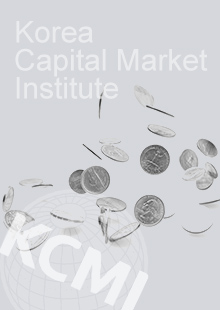Find out more about our latest publications

CCMR Interim Report: A Brief Review of US Capital Market Regulation Reform Efforts
Issue & Policy 07-02 May. 31, 2007
- Research Topic Capital Markets
- Page 75
The concern that the U.S. capital markets, especially public equity markets which have long been regarded as the world's largest and most well-functioning capital markets, are losing their competitive edge is growing in the U.S. As an effort to reverse the trend and to maintain the leadership of the U.S. capital markets, the Committee on Capital Markets Regulation (CCMR) was formed in September 2006, and CCMR published its first report containing suggestions for regulatory reform in the U.S. public equity markets in November 2006 (CCMR(2006)).
There are two major competitors to the U.S. public equity markets. One is foreign markets and the other is private equity markets in the U.S. During the recent few years, non-U.S. companies have raised much more capital in foreign markets than in the U.S. markets, and the amount of capital raised in private equity markets such as private equity funds is also much larger than that in public equity markets. CCMR(2006) recognizes excessive regulatory burden and costs as an important factor for diminishing competitiveness of the U.S. public equity markets and proposes several important reform agenda.
Suggestions of CCMR(2006) for improvement of regulatory process include systematic cost-benefit analysis in rule-making, shift from the current rules-based regulation to principles-based regulation, and better coordination/cooperation among regulatory bodies. CCMR(2006) also argues that the civil and criminal legal enforcement system of the U.S. incurs excessive costs. Especially, CCMR (2006) expresses suspicion about the economic benefit of securities class actions in the sense that they bring about wealth transfer among shareholders of the same company.
CCMR(2006) suggests that the prosecution of an entire company should be limited to very exceptional cases, and that legal liabilities of auditing firm and outside directors should be more reasonably adjusted.
For stronger protection of shareholder rights, CCMR(2006) suggests that board's authority to adopt poison pill should be appropriately checked by shareholders, and that the election of directors should be through majority voting not through current plurality voting. CCMR(2006) also argues that the implementation of Section 404 of Sarbanes-Oxley Act should be reformed into more cost-effective way.
The fact that even the U.S. capital markets, which are considered strongest in the world, are making incessant efforts to maintain and improve their competitiveness rings the alarm to Korea. Capital market development is one of the most urgent and important national task for sustained economic prosperity in Korea, and CCMR(2006) shows that well-designed and effectively-implemented regulation is a key for capital market development. Prompt legislation of the “Capital Market and Investment Services Act” (so-called ”Consoliation Act“) should be the first step toward such regulation in Korea.